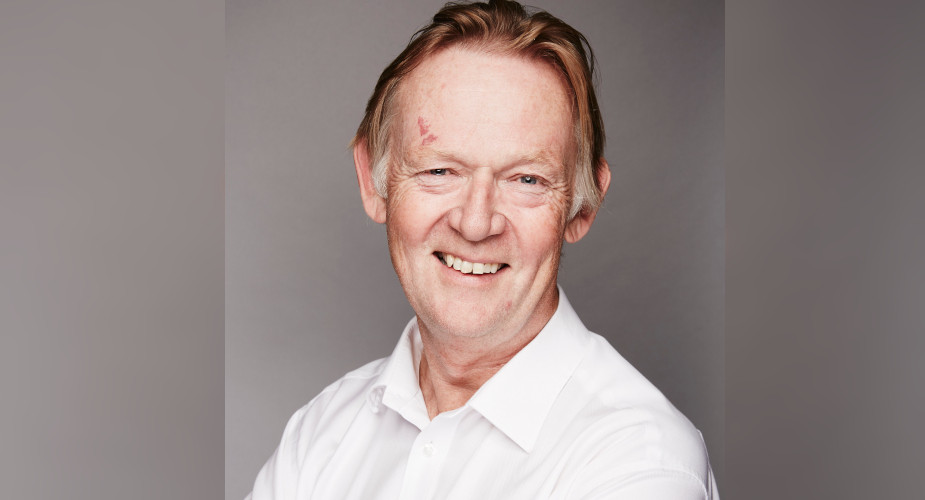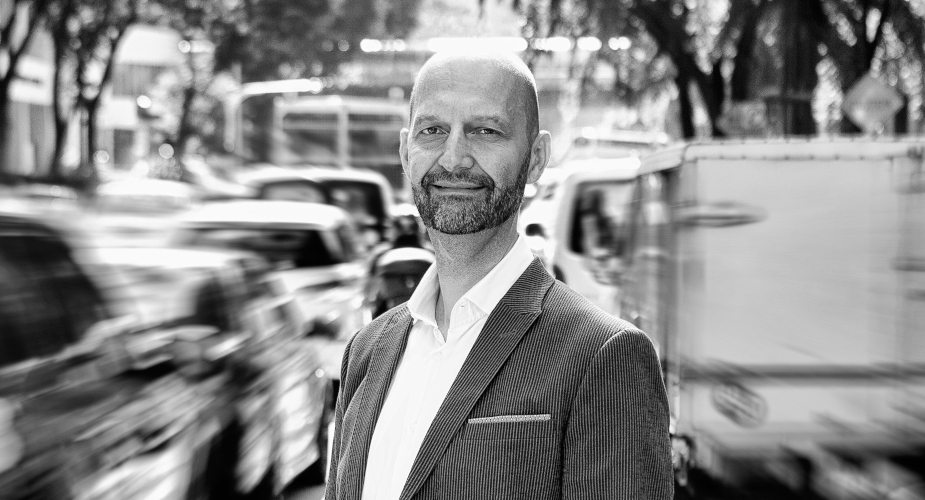
2022 Cheat Sheet: Putting Sustainability to the Test

As with everything, Covid also had its silver lining – almost every industry cut its carbon emissions rapidly, and our lives became far more sustainable with less travel and less energy usage. Although this brings progress to the cause, it’s likely that these results are a lucky coincidence - as much as we can say anything to do with the pandemic is ‘lucky’. The ad industry of course was also part of this progress, with productions grounded and everyone at home, making it easy for the industry to appear to be making strides when it comes to environmental issues.
In 2022, as the world slowly opens its shutters and people start going back to workplaces, everything seems to be picking up pace. We wanted to know, how will the industry avoid slipping back into old habits and what are fundamental systemic changes we need to implement in order to avoid old habits creeping back in.
The Advertising Association’s Stephen Woodford, Ocean Outdoor’s Richard Malton, Grey’s Konstantin Popovic, FCB’s Jenni Doubleday, Amanda Langkilde and Jane Wardlaw all shared their thoughts with LBB's Zoe Antonov on the matter and revealed what is in store for 2022.

Stephen Woodford
CEO, Advertising Association
Our goal for Ad Net Zero is to achieve net-zero emissions from the development, production, and media placement of advertising by the end of 2030. We’ve seen incredible progress across each of the actions in 2021, such as the Ad Net Zero Guide for businesses, the AdGreen carbon calculator for production and the IPA Media carbon calculator.
But these are initial steps, and Ad Net Zero is a 10-year plan and we are determined to make year-on-year progress to drive positive action through our industry.
Here are three ways to help keep the industry moving forwards.
1. Completing the Ad Net Zero Essentials training
2. Registering and embedding the use of carbon calculator tools like AdGreen in your day-to-day working practices
3. Joining Ad Net Zero and being a part of this growing industry drive for change
To make good on the actions of Ad Net Zero, we will be introducing certification for Ad Net Zero supporters during 2022. This is the next natural step in ensuring companies are taking the necessary steps to reduce carbon emissions from every part of advertising’s operations.
I am excited and optimistic thinking about where we could be when we present our Ad Net Zero Global Summit 2022, aligned with the timings of COP27 next November. I am confident the progress we’ve made in 2021 will accelerate next year and each year afterwards, so we can achieve our net-zero target by 2030.

Richard Malton
Chief marketing officer, Ocean Outdoor
It’s, without doubt, the single biggest issue that faces us. There simply isn’t a plan B. The ad industry is uniquely placed to drive the sustainability agenda as (if we are what we say we are) we have the skill sets to influence behaviour, to lead the challenge. Let’s use them.
It works both ways - from the top down and the bottom up. But these have to meet quickly and that’s when we will start seeing success.
Sustainability has to be subconscious at both a corporate and personal level. Every business should examine its own business and behaviours, that’s the starting point but you will have to quickly look beyond the Intergovernmental Panel on Climate Change Scopes 1 and 2 and get stuck into Scope 3.
Banning plastic bottles and having a decent office recycling system won’t cut it. In the media industry, we have to be confident about our entire supply chain - and we will all have to have some very tough conversations.
It will undoubtedly be uncomfortable to some, but every business should have a very clear plan to eliminate, reduce and offset carbon emissions, set within a science-based framework - and this should be an ongoing process, not a one off.
Staff engagement will be key, as will be helping and supporting businesses and charities in this space. At Ocean we have a fund based on 2% of our total year’s revenue that we will use to amplify the messages of charities with an environmental agenda through media space – I’d urge all media owners to replicate this.
The Advertising Association’s Ad Net Zero initiative is, without doubt, a good start from the industry and I’m convinced that it will help push the agenda not just in our industry but through to our clients. There is no time for a slow start, the race is on and humanity is many laps behind.

Konstantin Popovic
CEO, Grey Group Singapore
Historically, one could consider the marketing industry part of the problem: driving overconsumption, pushing fast fashion and other products and trends that may not have been healthy for our environment nor for humans. In 2022, it is time for our industry to become part of the solution and we are well equipped to be a driving force in the sustainability revolution. We believe that marketing can become planet positive.
This year, every marketing agency should look at the following four areas.
Getting our own house in order: the pandemic has already resulted in some new positive behaviours that we must keep up, for example significantly reduced regional travel. Do we really want to go back to taking seven hours flights one way for a two hour meeting? There is also a huge opportunity to rethink the role of the office. No matter what version of the hybrid model each company may adopt, chances are most agencies will want to move to a smaller space, which will save costs and save energy. As we move into new spaces, we also have the opportunity to switch to renewable energy sourcing and reduce both our carbon and plastic footprints through smart and modern office design. Finally, like in any organization, agency leadership has the obligation to educate all employees and turn everyone into responsible citizens and multipliers of progress.
Engage in work that changes behaviour for the better: A part of the climate crisis can be solved at the consumer level, because consumers vote with their wallet, so shifting attitudes and habits through behaviour change or educational campaigns is something we can collectively do as an industry. An example would be working with government entities or NGO’s to create overall climate crisis awareness or educate on renewable energy options.
Support start-ups that are driving the sustainability revolution. While regulation is necessary to slow down emissions, the more fascinating part of the solution is innovation. Hundreds of start-ups across all areas of sustainability are working hard to change the world. They deserve the attention and the support of our industry. Whether it’s figuring out green hydrogen or the future of food, let’s help the sustainability start-up eco-system to innovate our way out of the climate crisis.
Partner with your corporate clients to accelerate their own sustainability journey: our clients do not have a choice anymore, everyone will have to figure out how they can become part of the solution. Our industry can help our clients on three levels: the strategic side, consulting our clients on how to bring together their business goals with a more purposeful corporate or brand vision, the innovation side, helping to identify new sustainable products & services, and the communications side, to bring all key internal and external stakeholders along the journey.
In summary, our industry has a key role to play in driving better outcomes for our planet – let’s make 2022 the year we come together, to drive these outcomes as an industry.
Jenni Doubleday, Amanda Langkild and Jane Wardlaw
Head of creative services, head of content and head of client services, FCB New Zealand
Sustainability has become increasingly important to clients, particularly in the last few years, in line with the increased sustainability expectations from their customers. Most have dedicated sustainability offers and are looking to implement them first internally.
Outwardly and in regard to driving business on sustainability, it’s obvious that some clients are moving faster than others. Where there is a natural alignment to the category in which they operate – service or product – it is more advanced. Energy companies have been wary about being accused of tokenism so we urge our clients to step in authentically.
FCB is expected to have sustainability and credibility, which a few years ago could have been called a box ticking exercise. We are moving beyond that now, looking outwards as well as inwards and urging our clients to lean in as we believe it is part of our role to build a better New Zealand – to fight for progressive change.













